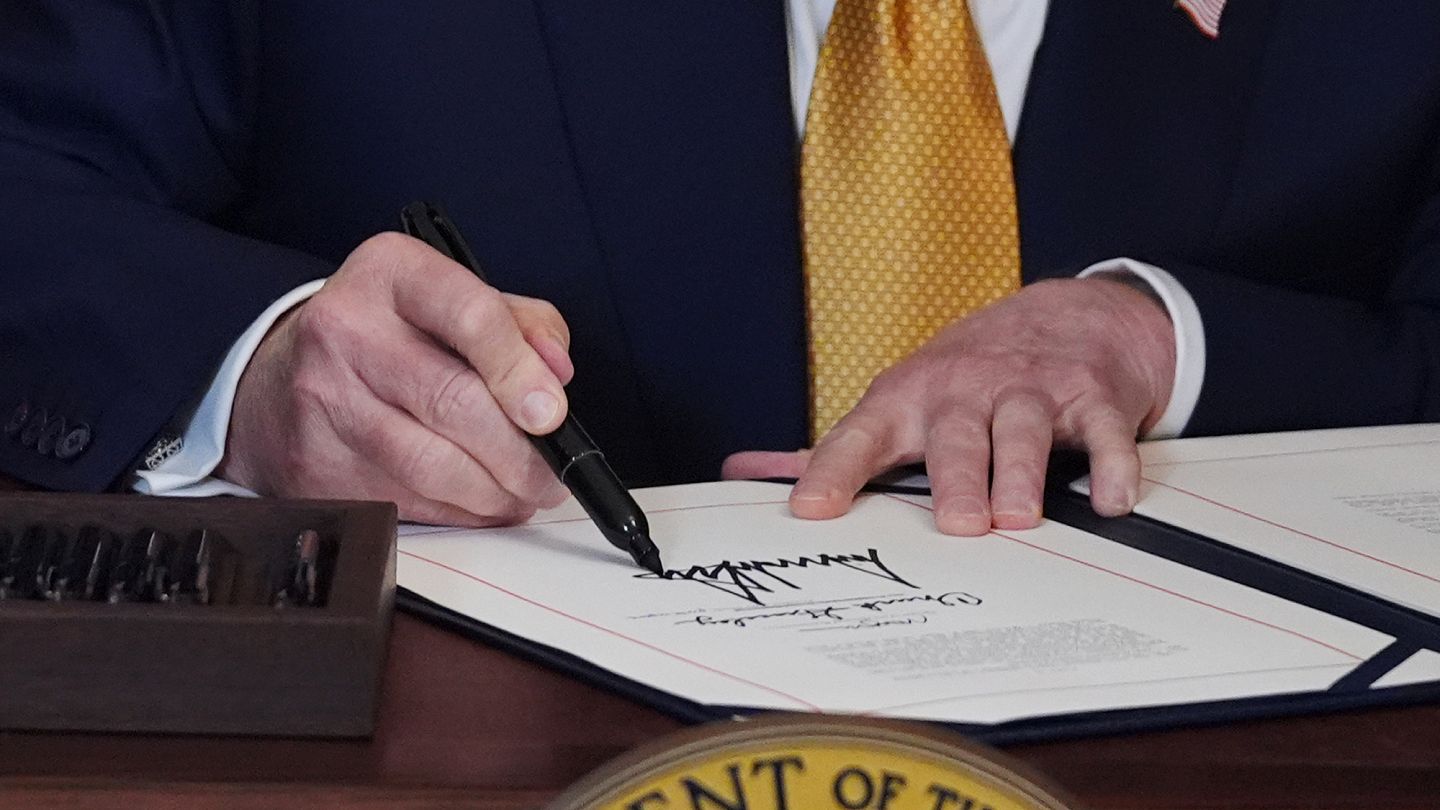US House passes Trump plan to cut billions for public broadcasting and foreign aid
The US House approved Trump's plan to cut $9 billion (€7.7bn) in public broadcasting and foreign aid, now awaiting his signature. The bill passed 216-213.
The US House of Representatives gave final approval on Friday to President Donald Trump's plan to cut roughly $9 billion (€7.7bn) in previously approved government funding for public broadcasting and foreign aid.The funding vote had been delayed for a couple of hours due to calls from Democrats to push for a vote on the release of disgraced sexual offender Jeffrey Epstein files, but eventually the House passed the bill by a vote of 216-213. The bill will now go to the White House to be signed into law by Trump. Some Republicans did not support the plan but voted in favour regardless, wary of crossing Trump and disrupting his agenda to drastically cut federal spending. It comes in an effort by the Republican party to target institutions that they view as bloated or out of step with their agenda. It is the first time in decades that a president successfully submitted such a rescission package to Congress, and Trump indicated that it won't be the last. The rescission package will rescind approximately $1.1 billion that was intended for the Corporation for Public Broadcasting (CPB), a budget it was expected to receive over the next two budget years. The CPB distributes two-thirds of its funds to more than 1,500 local public television and radio stations, and the remainder of its funds are assigned to National Public Radio (NPR) and the Public Broadcasting Service (PBS) to support national programming. The White House claims the public media system is politically biased against the Conservative party, and therefore deems it an unnecessary expense. Lawmakers representing rural areas expressed concerns about the funding cuts, emphasising that the stations are "not just your news," but also a tool for delivering emergency alerts, such as during natural disasters. It will also cut nearly $8 billion from foreign aid programs, including many designed to help countries where drought, disease and political unrest persist. Among these cuts are $800 million for a program that provides emergency shelter, water, and family reunification for refugees, and $496 million to provide food, water and healthcare for countries affected by natural disasters and conflicts.There is also a $4.15 billion cut for programs that aim to boost economies and democratic institutions in developing nations.Democrats warned that the bill would hurt the US' standing and instead offer an opportunity for China to fill a gap. The Republicans argued back that the cuts would incentivise other nations to step up and do more in times of a humanitarian crisis.


